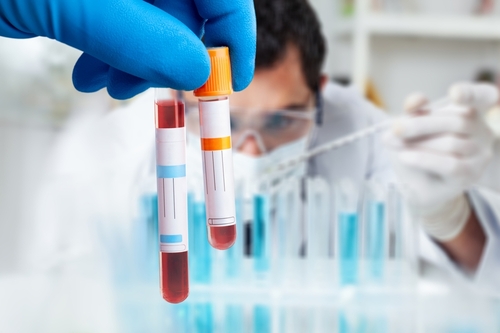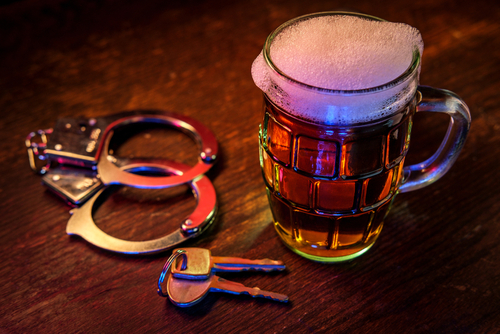Blood Tests in DUI Cases: Are They Always Accurate?
A Certified Phlebotomist DUI Lawyer in Indiana has a distinct advantage when it comes to challenging DUI blood test evidence. Blood tests are often presented as ironclad evidence in DUI cases, leaving many defendants feeling as though they have no recourse. However, what if those test results were flawed? What if there were errors in the collection, storage, or analysis of the sample?
During a DUI investigation, it is crucial that all procedures are followed correctly to ensure the integrity of the evidence. DUI blood tests are not always accurate, and a skilled attorney can challenge their validity. With specialized knowledge of blood testing, they can expose weaknesses in the prosecution’s evidence and build a strong defense.
Many factors can impact the accuracy of a blood test. From improper collection techniques to contamination risks and chain of custody issues, understanding these potential problems can provide a strong basis for challenging DUI blood test evidence.
Understanding Blood Alcohol Concentration (BAC) and How It Is Measured
Blood Alcohol Concentration (BAC) is a critical factor in determining whether a driver is impaired. In Indiana, the legal limit for BAC is 0.08%. However, understanding how BAC is measured and what factors can affect it is crucial for a strong DUI defense.
BAC is typically measured through either a breath test or a blood test. Breath tests use a device called a breathalyzer to measure the amount of alcohol in a person’s breath, providing an estimate of their BAC. Blood tests, on the other hand, measure the actual amount of alcohol in a person’s blood, often considered more accurate but also more invasive.
Several factors can influence BAC levels, including body weight, metabolism, and the amount of food consumed. For instance, a person with a higher body weight may have a lower BAC than someone with a lower body weight after consuming the same amount of alcohol. Similarly, a person’s metabolic rate can affect how quickly alcohol is processed and eliminated from the body. Eating food before or while drinking can also slow the absorption of alcohol into the bloodstream, resulting in a lower BAC.
Understanding these factors is essential for a robust DUI defense, as they can provide context and potentially challenge the prosecution’s case based on BAC evidence.
How DUI Blood Tests Work
When law enforcement suspects a driver of being under the influence, they may administer a blood test to determine Blood Alcohol Content (BAC). Here’s how the process typically unfolds:
- Collection: A medical professional or certified officer collects the blood sample using a needle and vacutainer.
- Storage: The sample is stored in a sealed tube, which must contain the correct preservatives and anticoagulants to prevent fermentation and clotting.
- Transportation: The sample is sent to a forensic lab where it is analyzed using gas chromatography or other chemical analysis methods.
- Analysis: The lab measures BAC and reports the results to law enforcement and prosecutors.
Understanding DUI laws is essential, as they dictate the procedures that must be followed during the collection and analysis of blood samples.
While this process seems reliable, there are numerous ways in which errors can occur. These mistakes can significantly impact the accuracy of a BAC reading and lead to unjust DUI charges.
How is Blood Collected and Stored in DUI Cases?
In DUI cases, the collection and storage of blood samples are critical steps in ensuring the integrity of the evidence. However, improper collection and storage can lead to contamination and inaccurate results, which can significantly impact the outcome of a DUI case.
Blood is typically collected through a process called venipuncture, where a needle is inserted into a vein to draw a blood sample. This procedure must be performed by a trained medical professional to ensure that the sample is collected correctly and safely. Once collected, the blood sample is stored in a vial containing a preservative to prevent fermentation and contamination.
The vial is then sealed and labeled with the defendant’s name, date, and time of collection to maintain a clear chain of custody. Proper labeling is crucial to avoid mix-ups and ensure that the sample can be accurately traced back to the defendant. The blood sample is then transported to a laboratory for analysis, where it is tested to determine the Blood Alcohol Concentration (BAC).
Any errors in the collection, storage, or transportation of the blood sample can compromise the accuracy of the BAC results, providing grounds for legal challenges in DUI cases.
Common Errors in Blood Testing
Even small mistakes in blood testing procedures can lead to inaccurate BAC readings. Some common errors include:
These mistakes can significantly impact the accuracy of a BAC reading and lead to unjust DUI charges, which carry severe DUI penalties.
Improper Collection Techniques
- Blood must be drawn using sterile techniques and proper anticoagulants.
- If the blood sample is not mixed correctly, clotting can affect the BAC measurement.
- Improperly trained personnel may not follow standardized procedures, leading to inconsistencies in test results that defense attorneys can challenge.
Contamination Risks
- If the collection site is cleaned with an alcohol-based swab, it can introduce ethanol into the sample, leading to false positives.
- Cross-contamination from poorly maintained lab equipment can skew results.
- Incorrect labeling or handling of multiple samples can lead to mix-ups and misinterpretations, weakening the prosecution’s case.
Fermentation & False Positives
- If a sample is not properly refrigerated, fermentation can occur, leading to artificially high BAC readings.
- Delays in processing can cause the blood to break down, leading to unreliable results.
- The presence of medical conditions such as diabetes can cause naturally high acetone levels, which may be misinterpreted as alcohol.
Chain of Custody Issues
- Every person handling the blood sample must document their actions.
- Lost, mislabeled, or mishandled samples may not be admissible in court.
- Any break in the documented chain of custody can cast doubt on the validity of the evidence.
Why a Certified Phlebotomist DUI Lawyer Has the Advantage
Having DUI attorneys who are also certified phlebotomists can make all the difference in challenging blood test evidence. Here’s how:
Understanding the Science
A lawyer trained in phlebotomy understands the complexities of blood testing, from proper collection methods to potential errors in analysis. A nationally recognized DUI expert can provide invaluable insights into the complexities of blood testing.
Spotting Testing Mistakes
An attorney with this expertise can scrutinize police procedures, medical documentation, and lab reports for errors that could compromise the validity of the test results.
Cross-Examining Expert Witnesses
Prosecution experts may claim the blood test is irrefutable, but a phlebotomist-attorney can challenge their testimony with scientific and medical knowledge. They can ask precise questions about lab procedures, chain of custody, and test accuracy.
Utilizing Expert Testimony
In some cases, calling in a forensic toxicologist or medical expert to testify can strengthen the defense. A knowledgeable attorney knows when and how to leverage this strategy to create reasonable doubt about BAC evidence.
Understanding Indiana’s Implied Consent Law
Indiana’s implied consent law requires drivers to submit to a chemical test, such as a breathalyzer test or blood test, if they are suspected of driving under the influence. Understanding the implications of this law is crucial for a strong DUI defense.
Implied consent means that by driving in Indiana, a person automatically consents to a chemical test if law enforcement suspects them of DUI. Refusing to take a chemical test can result in penalties, including the suspension of the driver’s license. However, it is important to note that a person has the right to refuse a chemical test, and doing so may not necessarily result in a conviction.
Refusing a chemical test can complicate a DUI case, but it also opens up additional avenues for defense. For instance, the prosecution may argue that the refusal indicates guilt, but a skilled DUI lawyer can counter this by highlighting the defendant’s legal rights and questioning the validity of the initial stop or arrest.
Understanding Indiana’s implied consent law and its implications can help defendants make informed decisions and build a stronger defense against DUI charges.
Legal Implications of Improper Blood Test Evidence
Improper blood test evidence can have significant legal implications in a DUI case. If the blood test evidence is contaminated or inaccurate, it may not be admissible in court, which can greatly affect the prosecution’s case.
One way to challenge improper blood test evidence is through a motion to suppress. A motion to suppress is a legal motion that asks the court to exclude certain evidence from the trial on the grounds that it was improperly obtained or is unreliable. If the motion is granted, the blood test evidence may not be used against the defendant, which can weaken the prosecution’s case and increase the chances of a favorable outcome for the defendant.
For example, if there were errors in the collection, storage, or analysis of the blood sample, a defense attorney could argue that these errors compromised the integrity of the evidence. Similarly, if there were issues with the chain of custody, the defense could argue that the sample may have been tampered with or contaminated.
Challenging improper blood test evidence requires a thorough understanding of the legal process and the specific procedures involved in blood testing. A knowledgeable DUI attorney can identify potential weaknesses in the prosecution’s case and use them to the defendant’s advantage.
Case Studies: Successful DUI Defenses
Consider these anonymized examples where DUI blood test evidence was successfully challenged:
An experienced Indianapolis DUI lawyer can navigate the local legal landscape to achieve favorable outcomes.
Case 1: Refrigeration Issues Led to Case Dismissal
A DUI defendant’s blood test showed a BAC above the legal limit. However, the attorney discovered that the sample was stored improperly, leading to fermentation that artificially increased the BAC reading. The case was dismissed due to the compromised evidence, thanks to the diligence of skilled DUI lawyers.
Case 2: Contamination from Alcohol-Based Swab
A defendant’s blood test results were invalidated because the blood was drawn using an alcohol-based swab. The introduction of external ethanol into the sample led to a false positive BAC reading. Charges were reduced significantly.
Case 3: Chain of Custody Issues
A DUI case was thrown out after it was revealed that the defendant’s blood sample was handled by multiple unauthorized individuals without proper documentation. The defense successfully argued that the chain of custody had been broken, making the evidence inadmissible.
What to Expect After a DUI Arrest in Indiana
After a DUI arrest in Indiana, a person can expect to face a series of legal challenges. Understanding what to expect can help a person prepare for the legal process and make informed decisions.
Following a DUI arrest, the individual will typically be taken to a police station for booking, where they will be photographed, fingerprinted, and formally charged. Depending on the circumstances, the person may be released on bond or held in jail until their court date.
The legal process involves several court hearings, starting with an initial hearing where the charges are formally presented, and the defendant can enter a plea. Subsequent hearings may include pre-trial motions, such as motions to suppress evidence, and ultimately, a trial if the case is not resolved through a plea agreement.
Navigating the legal process can be complex and overwhelming, but having a skilled DUI attorney can make a significant difference. A DUI attorney can help the defendant understand their rights, develop a strong defense strategy, and represent them in court. From challenging the validity of the blood test evidence to negotiating with prosecutors, a DUI attorney plays a crucial role in achieving the best possible outcome for the defendant.
If you or a loved one are facing DUI charges, it is essential to seek legal representation as soon as possible. Contact Rathburn Law today for a free consultation and let an experienced attorney with forensic blood testing knowledge fight for your rights.
Why You Need a DUI Lawyer with Phlebotomy Expertise
A DUI charge can be life-altering, but blood test evidence is not always as conclusive as prosecutors claim. With the expertise of a Certified Phlebotomist DUI Lawyer in Indiana, defendants have a much stronger chance of challenging flawed test results and securing a favorable outcome.
If you or a loved one are facing DUI charges, don’t assume the evidence against you is infallible. Contact Rathburn Law today for a consultation and let an experienced attorney with forensic blood testing knowledge fight for your rights 317.671.8965











